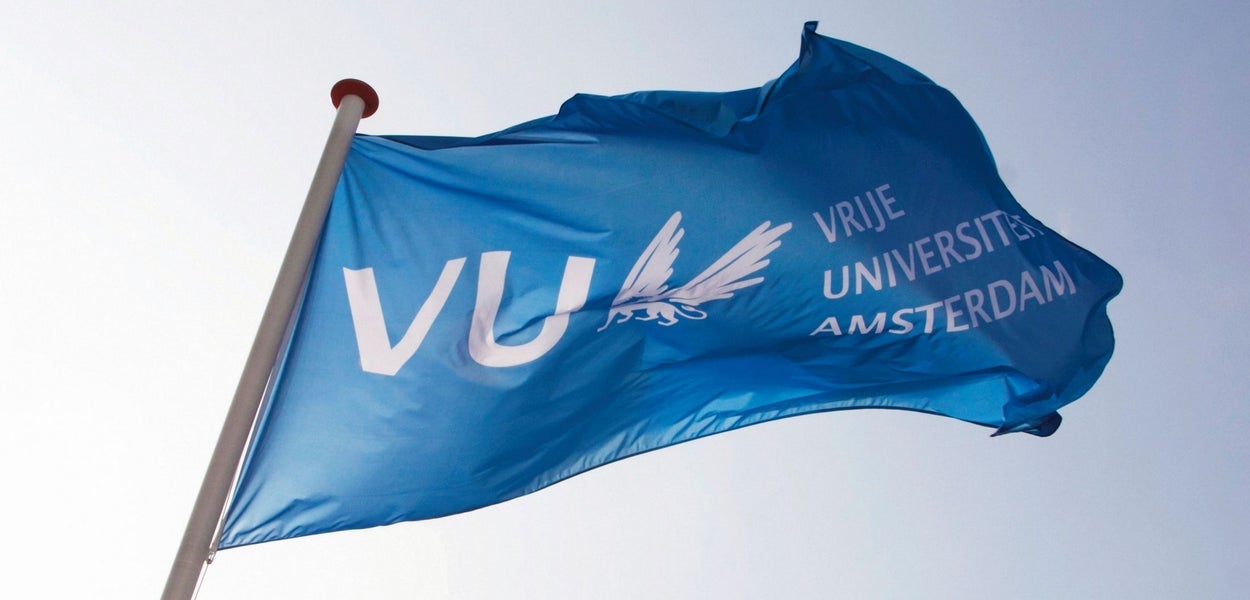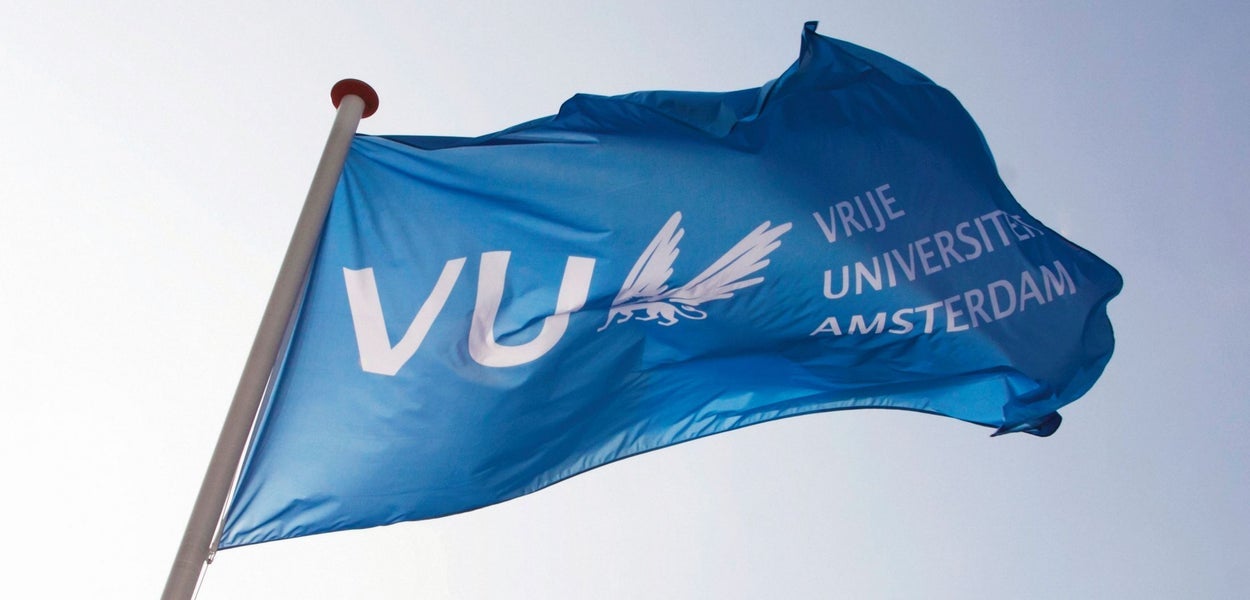The projects cover the entire breadth of the SSH research field, some with an interdisciplinary or cross-domain character. The assigned projects of Vrije Universiteit Amsterdam are:
TEND: Understanding the Nature of Socially Disruptive Technologies professor of philosophy Catarina Dutilh Novaes and philosopher Guido Löhr.
New technologies cause significant disruptions for individuals and societies. While technological innovation is typically intended to improve people's lives, for example by increasing efficiency, it often also has undesirable, destructive effects. The most obvious example are fossil fuel technologies, which have led to desirable consequences such as efficiency in means of production and mobility, but also to catastrophic climate change. Dutilh Novaes and Löhr. will develop a novel ecological approach to technological disruption to investigate how best to manage such disruptions.
Beyond Gender: The Impact of Intersectional Stereotypes on Labour Market Evaluations of Professor in Socio-Economics Klarita Gërxhani en behavioral economist Katharina Brütt.
The labour market significantly contributes to inequality, with women generally earning less and facing more obstacles in career progression. Our research seeks to better understand how stereotypes can contribute to these disparities. We will study how stereotypes are formed when individuals are characterised by several intersecting social identities, such as gender, race and socio-economic status. For instance, stereotypes about a woman’s competence can be shaped by her gender but also by her race and socio-economic status. We will use both theoretical and empirical methods to analyse how these intersecting identities influence stereotype formation and gender differences in labour market outcomes.
Real Fake: How highly immersive disinformation affects what people believe of professor for Virtual Reality and Communication Tilo Hartmann.
Immersive disinformation—realistic, AI-generated content that feels genuine, such as deepfakes or misleading 3D videos in virtual reality—poses a new risk. Traditional misinformation research has mainly focused on text, but immersive content can potentially influence people more strongly by creating lifelike experiences. Hartmann explores how these realistic digital experiences affect our thinking and may lead people to adopt false beliefs. Through four studies, he aims to explain how strongly immersive disinformation influences individuals, how this happens, and what new strategies can be developed to counter this powerful form of deception.
The best of both worlds: model specification and inference in hybrid machine learning econometric models of professor in Financial Econometrics André Lucas.
New techniques like deep learning and large language models (LLMs) are increasingly applied in everyday life and policy contexts. Quantifying the uncertainty surrounding predictions based on these models remains an underexplored field. Lucas pushes the frontier on three fronts by: 1. constructing hybrid models exploiting the best side of econometric and machine learning models and applying them to study the spread of fine particulate matter.2. constructing bands of uncertainty for the above models;3. constructing frames of uncertainty for models for unstructured data like text and picture predictions and studying the quality of bank's climate risk reporting.
Doing logic in Alexandria in the 5th-6th century CE of professor of Ancient Philosophy Marije Martijn and Maria Chiara Parisi.
How to teach philosophy in times of turmoil? Alexandria in the 5th-6th century, the "Oxford" of its time, was marked by religieus unrest. Its philosophical schools focused on logical and mathematical reasoning. Introducing "practice-based historiography of philosophy", Martijn is studying whether that was because logic and mathematics seemed neutral. And were they, really?
When should ethically contested markets be allowed? of Theo Offerman (UvA) and assistant professor behavioral and experimental economics Andreas Ziegler.
Many societal problems are essentially market design problems. Whereas current research focuses on efficiency, it is imperative to include people’s fairness views. Offerman and Ziegler aim to understand why people oppose the solutions proposed by classical economists. This will help us to search for modified designs that find more support. They will address markets in which sellers engage in dynamic pricing and markets that generate negative external effects. They will also consider the non-existence of market for challenge trials and the market for organ donations, in which we aim to find out whether there are modified designs that people would consider desirable.
The Irires language – The past, present and future of a newly revealed language of New Guinea of linguist Antoinette Schapper.
Irires is a highly endangered and almost completely undocumented language spoken on the Bird’s Head peninsula of the New Guinea island. Not even the hastily collected survey word lists so typical of New Guinea are available. In the modern globalised world, a previously unknown language is a rarity and presents a new prism through which to study linguistic diversity and the design space of human language as well as investigate models of population history and theories of language change. This project constitutes a highly targeted, synthetic study of the past, present and future of the Irires language.
Generation Zzz (GenZzz): Later School Start Times to Enhance Adolescent Sleep health scientists Associate Professor Maartje van Stralen and Assistant Professor Bonnie van Dongen, together with senior researcher for Healthy Living at the Amsterdam Public Health Service (GGD Amsterdam) Vincent Busch and postdoctoral researcher in Health Sciences Danique Heemskerk.
Getting sufficient quality sleep is crucial for adolescents’ health and school performance. However, current secondary school start times are not in synch with adolescents’ biological clock, making it impossible for many of them to get sufficient sleep. Changing these start times is complex, and most schools are unsure how to approach this. Therefore, we aim to identify the factors and processes involved and how they can be influenced. Thereafter, we co-design a toolkit with schools, parents, adolescents, and municipalities to facilitate schools to implement the needed changes and evaluate it on usability and impact on school policy and adolescents' sleep.
Synthetic Adventures: (un)sustainability and(dis)comfort in the design, making and use of outdoor clothing of Assistant Professor of Design History and Theory Jane Tynan
Petroleum-derived synthetics might be very efficient in keeping people dry, but reliance on non-renewable textiles for outdoor leisure is unsustainable. Synthetic Adventures explores the cultural drivers for the growth of outdoor clothing consumption in the face of complex environmental problems. Observing designers and consumers, Tynan asks whether normative understandings of weather perpetuate unsustainability in the apparel industry. A focus on weatherproof apparel highlights what decarbonising clothing cultures means in practice and offers pathways to understanding cultural and social barriers to addressing the climate challenge.
Why disinformation sticks: Exploring underlying mechanisms and more effective interventions of communication scientists Ivar Vermeulen and Ellen Droog.
Current interventions mitigating disinformation’s influence (e.g., refutations, warnings, inoculation, literacy training) prove effective in reducing perceived accuracy of presented disinformation, but much less in mitigating its broader persuasive effects (e.g., negative attitudes and institutional distrust). Vermeulen and Droog argue that current disinformation research misses an important point by focusing on refuting disinformation instead of refuting what people infer from disinformation. In this project they build on classical and novel (media-)psychological paradigms, developing a model explaining why more abstract inferred beliefs are more resilient to correction than specific beliefs. Based on these insights, they propose and test several interventions.
The pot may be calling the kettle black. Are expert witness reports within legal psychology free from bias? of professor of Legal Psychology Annelies Vredeveldt
Legal psychologists write expert witness reports in court cases. Such reports can affect judges’ and juries’ decisions. Often the reports describe how thinking errors may have biased decision-making at various stages of the criminal justice process. For example, police officers may have been subject to confirmation bias by focusing on evidence supporting their suspicions while ignoring contradictory information. Since biases are fundamentally ingrained in human thinking processes, the question arises whether legal psychologists themselves are also vulnerable to biases. The researchers will analyse real Dutch reports and conduct four experiments to test whether legal psychologists themselves are vulnerable to bias.

